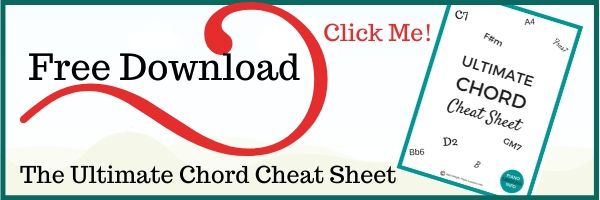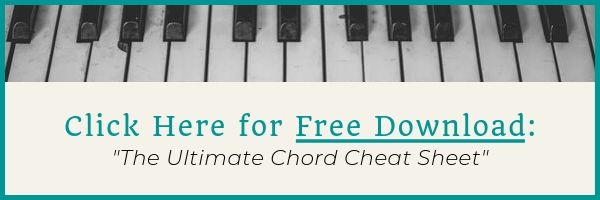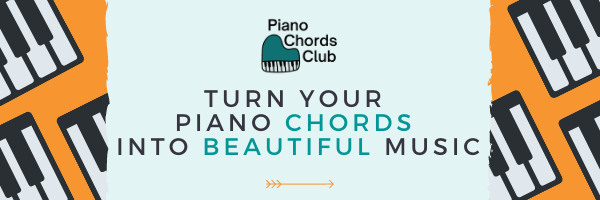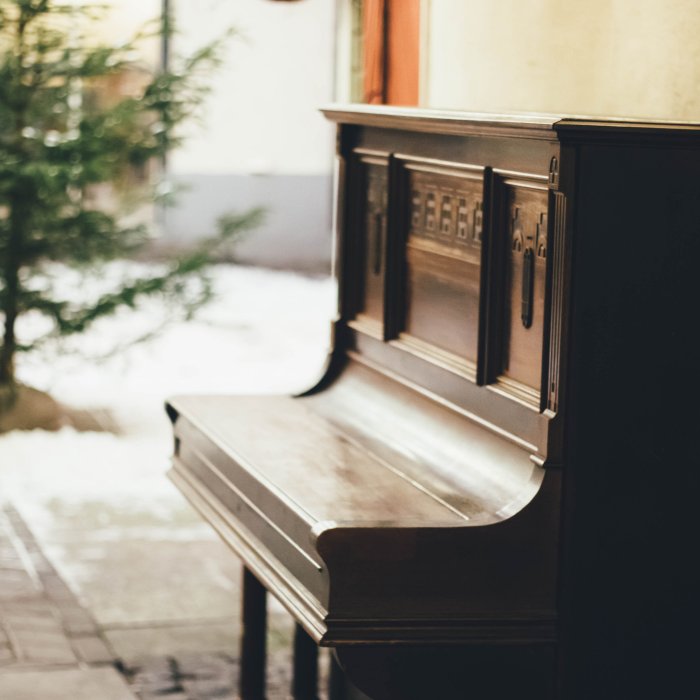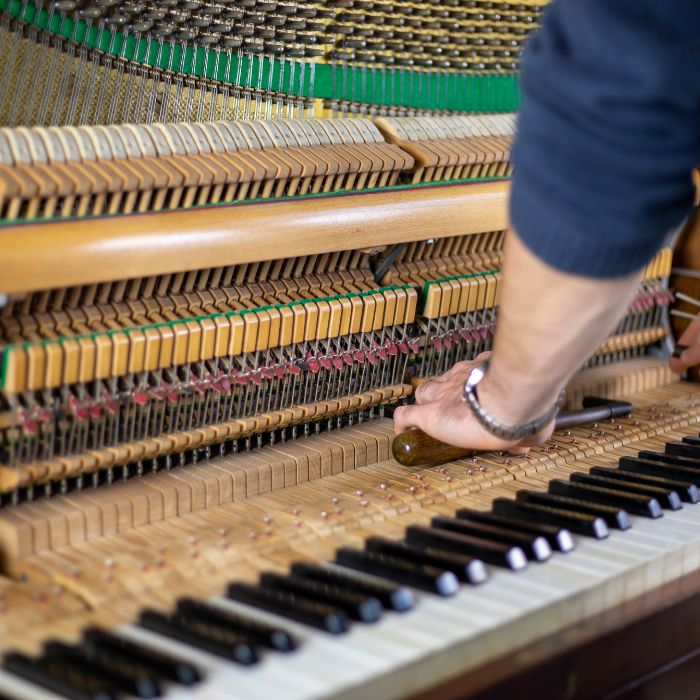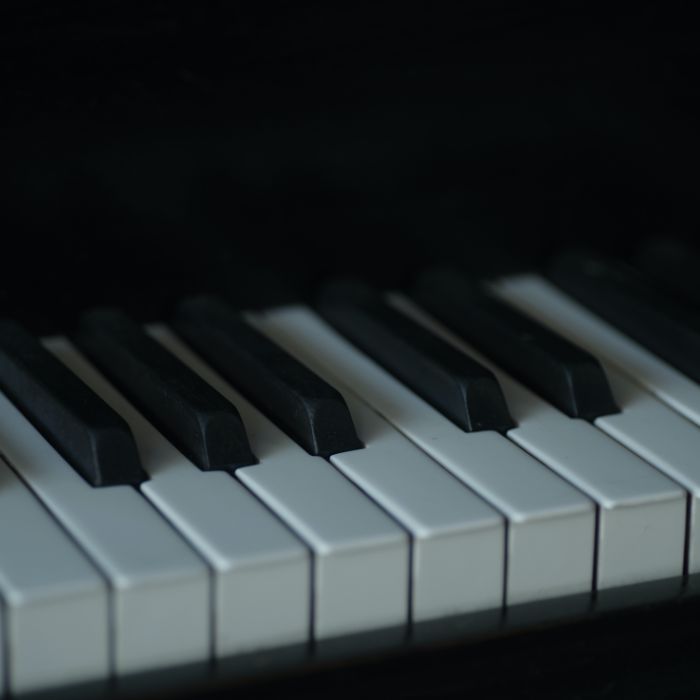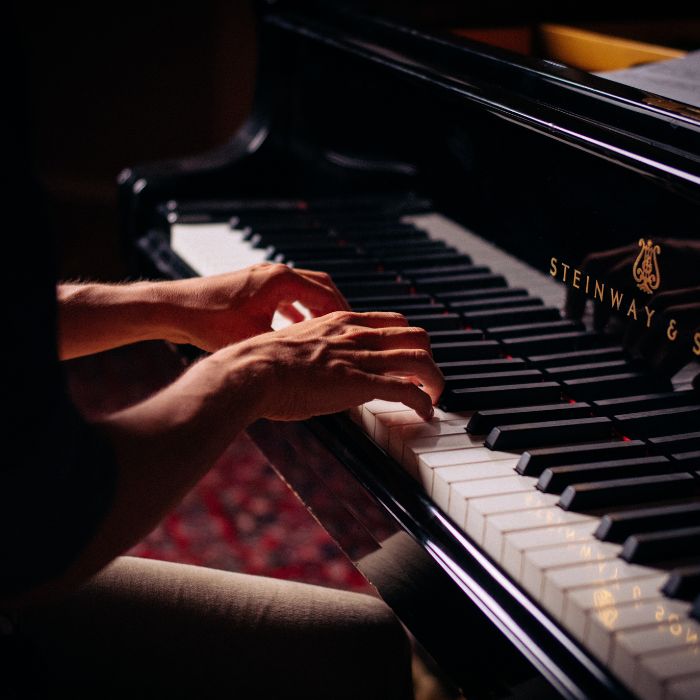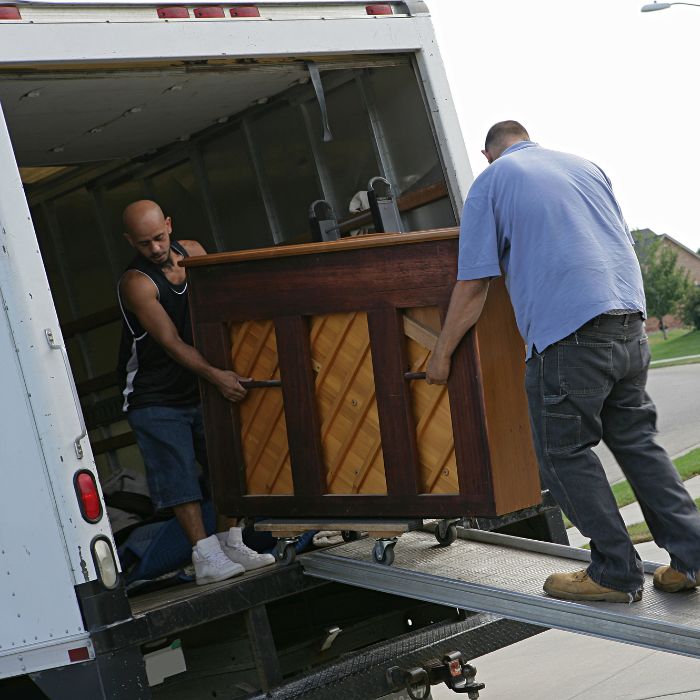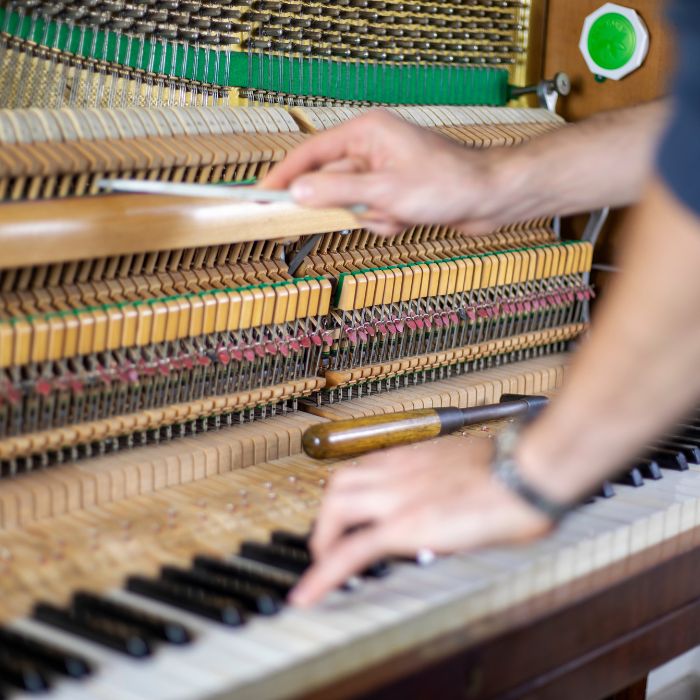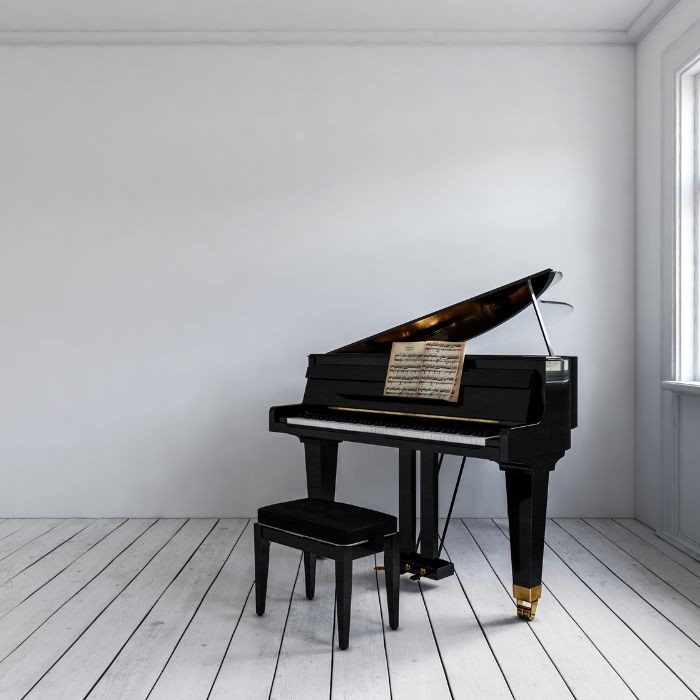Acoustic vs Digital Piano: Choosing the Perfect Instrument for You
Are you considering taking up piano playing or perhaps looking to upgrade your current instrument? If so, you may be weighing up your options in the acoustic vs digital piano debate.
Both types of pianos have their advantages, and the choice depends largely on your personal preferences, space, budget, and playing level. Let's work out what is right for you.
Acoustic Pianos: A Traditional But Satisfying Choice
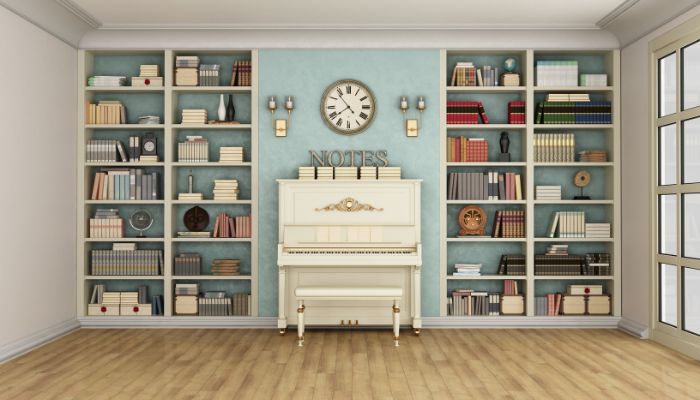
Acoustic pianos, which include both upright and grand models, are the epitome of traditional piano playing. Their sound is created by a hammer striking strings when the keys are pressed, and it's this organic mechanism that creates the rich, nuanced sound so many associate with the piano.
When playing an acoustic piano, you get a level of control and expressiveness that is often difficult to replicate digitally. The acoustic piano’s tactile response or 'action' is highly sensitive to the player's touch, allowing you to convey subtle emotions in your playing.
However, the beauty of an acoustic piano comes with some considerations:
- They require regular tuning (typically twice a year)
- Occasional maintenance or repairs may be needed to keep the sound quality high.
- They are heavy and hard to move (see how much is a piano mover)
- Acoustic pianos require a reasonably sized space.
Cost-wise, a quality acoustic piano is generally more expensive than its digital counterparts but not always. Sometimes you can get these for free or the cost of moving only. See the article on how much pianos cost for more on this.
In summary: acoustic pianos are more enjoyable to play but they require tuning and are harder to move.
Digital Pianos: Convenience and Flexibility
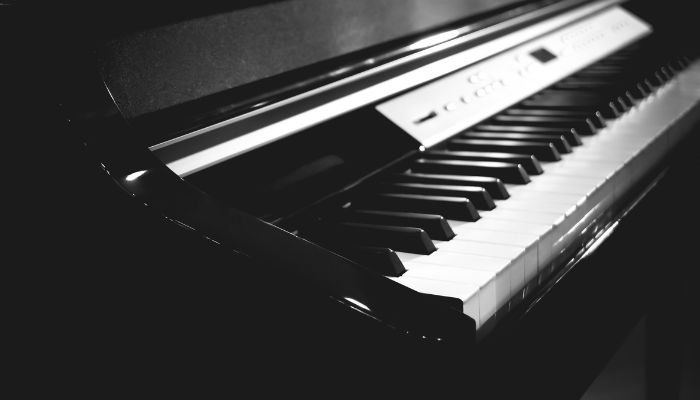
On the other hand, digital pianos have come a long way in the past few decades. High-quality digital pianos now offer sound samples recorded from top-of-the-range acoustic models, resulting in a remarkably close imitation of the acoustic piano's unique sound.
One of the main benefits of a digital piano is its convenience.
Digital pianos never need tuning, are relatively lightweight, and easy to move. They also often include headphone jacks for silent playing, making them apartment-friendly. Volume control, something not possible with an acoustic piano, can be a key feature for those who live with others.
That being said, it is often this volume control that limits you when you are playing. Softs are only so soft and you'll play only as loud as the volume goes.
Digital pianos often come with built-in learning tools, such as metronomes and recording capabilities, which can be a boon for beginners. They can also be connected to computers for digital recording, making them a great choice for composers, songwriters or those who enjoy creating their music.
However, despite advancements in technology, some digital pianos still fall short of the tactile experience offered by acoustic pianos. Also, budget models might not deliver the desired sound quality, so it's essential to do your research before choosing one.
In summary: digital pianos are easier to move, don't need tuning but may not be as physicality or dynamically responsive compare with an acoustic piano.
Acoustic vs Digital Piano: Making Your Choice
When choosing between an acoustic and a digital piano, it's crucial to consider what is most important to you. If you crave the authentic, resonant sound and feel of a traditional piano, and you have the space and budget for it, an acoustic piano could be the perfect fit.
However, if you need an instrument that's easy to move, doesn't require tuning, and comes with digital capabilities for learning and recording, a digital piano could be the better choice.
Try playing both types of pianos, if possible, before making a decision. Consider what feels and sounds best to you. And remember, the acoustic vs digital piano debate isn't about one being superior to the other—it's about finding the right instrument for your unique needs and musical journey.
Whether you choose the classic allure of an acoustic piano or the modern convenience of a digital one, the most important thing is to find an instrument that inspires you to play and create beautiful music.
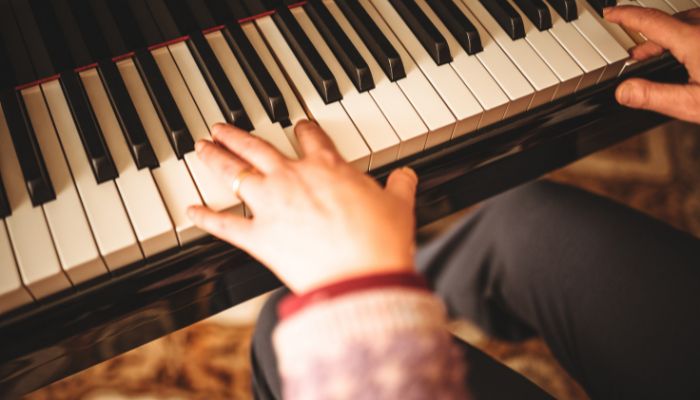
Which Type of Piano Do I Own As Piano Teacher?
I have owned a variety of pianos over the years. I own a really nice acoustic piano that lives in my mom's house across an ocean. So it's not coming here and is not the one I use regularly.
I actually teach piano on a nice digital piano. After moving here, I did get an acoustic, then a clunky digital piano and finally upgraded that to a higher quality Yamaha digital piano. (This is the one I own here.)
While I don't get the same experience as an acoustic piano, I have happily traded that off for the tuning costs and ability to move it. I live in a place open to sea air and alternating dry and humid weather. And piano tuners are hard to find here. So it's a trade-off but an out of tune piano is not an option.
My digital piano is good enough to teach on and enjoy playing but I do miss out on creating more dynamics as I play.
Frequently Asked Questions (FAQs) about Acoustic vs Digital Piano
1. What are the main differences between acoustic and digital pianos?
1. What are the main differences between acoustic and digital pianos?
The main differences lie in how they produce sound and their features. An acoustic piano uses hammers and strings to produce sound, resulting in a rich, nuanced tone.
A digital piano uses electronic sound samples, often from high-quality acoustic pianos. Digital pianos also come with extra features like headphone jacks, volume control, and connectivity options.
2. Which is better for beginners, acoustic or digital piano?
2. Which is better for beginners, acoustic or digital piano?
This depends on the student’s preferences and circumstances. A digital piano can be more convenient because of its lower cost, smaller size, and additional learning tools. But an acoustic piano can offer a richer playing experience and can help beginners develop better playing technique due to its more responsive touch.
3. Do digital pianos need to be tuned?
3. Do digital pianos need to be tuned?
No, digital pianos do not require tuning. Their electronic nature means the pitch of the notes never alters, unlike the strings in an acoustic piano.
4. Is a digital piano less expensive than an acoustic one?
4. Is a digital piano less expensive than an acoustic one?
Generally, yes. You can get a high-quality digital piano at a lower cost than an acoustic one. However, there's a broad price range for both types, and top-end digital models can match or even exceed the price of some acoustic pianos. And sometimes you can find someone just giving away a piano.
5. Can I use headphones with an acoustic piano?
5. Can I use headphones with an acoustic piano?
No, acoustic pianos don't support headphone use. This feature is only found on digital pianos, making them ideal for quiet practice or playing in shared spaces.
6. Do digital pianos feel like acoustic pianos?
6. Do digital pianos feel like acoustic pianos?
High-quality digital pianos are designed to mimic the feel of an acoustic piano, featuring 'weighted keys' to replicate the touch and response. However, some players still find that digital pianos do not exactly match the feel of an acoustic piano. They are close but not quite as responsive and sensitive.
7. Which lasts longer, an acoustic or a digital piano?
7. Which lasts longer, an acoustic or a digital piano?
Acoustic pianos usually have a longer lifespan than digital ones if they're well-maintained. They can last for several decades or even over a century. Digital pianos, on the other hand, can become outdated as technology advances, and their lifespan also depends on the quality of the electronics.
My digital piano, a good quality one, has listed it's life span as 20 years.
8. Do acoustic pianos hold their value?
8. Do acoustic pianos hold their value?
Yes, especially if they're well-cared for. Top-quality acoustic pianos can even appreciate in value over time. Digital pianos, however, typically depreciate more rapidly due to technological advancements. They can also break.
9. Can I connect my digital piano to a computer?
9. Can I connect my digital piano to a computer?
Yes, most digital pianos come with USB or MIDI connectivity, allowing you to connect to a computer for recording or composing music using various software.
Does that help you solve your acoustic vs digital piano question?
So you have the option of buying an acoustic piano, a digital piano or even a keyboard if you find that is what you'd like to start playing on. For more details on buying pianos and what they cost, this article will help you further. Especially if you're not sure which way you want to go.
Free Download:
Ultimate Chord Cheat Sheet
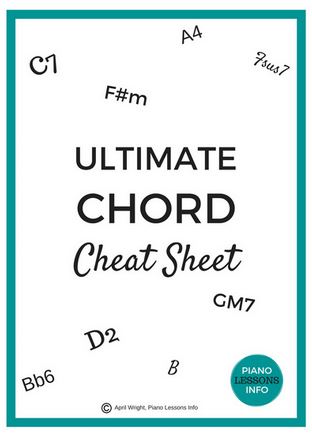
Subscribe below and get free access to the (printable) Ultimate Chord Cheat Sheet.
Recent Articles
-
Piano Notes Chart
Nov 20, 23 10:21 PM
Find a piano notes chart for treble clef and bass clef notes as well as the different types of notes. -
D Chord on Piano + Diagram, How To & Theory
Oct 24, 23 12:20 AM
Learn how to play the D chord on piano with diagram, fingering, D/A, D/F# and a theory explainer. -
Diminished Piano Chords: Chart & How to Make Them
Oct 09, 23 09:23 PM
Learn the different diminished piano chords and how to make them. Here you'll find both a diminished chord chart and an explanation.
- Home
- Buying a Keyboard
- Acoustic Vs Digital Piano
